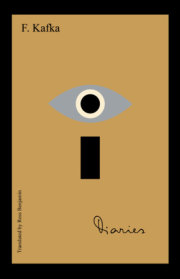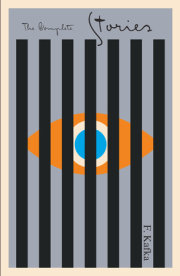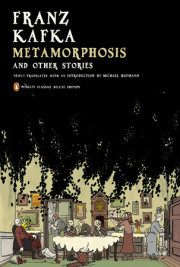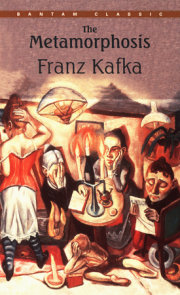Dearest Father,
You asked me recently why I maintain that I am afraid of you. As usual, I was unable to think of any answer to your question, partly for the very reason that I am afraid of you, and partly because an explanation of the grounds for this fear would mean going into far more details than I could even approximately keep in mind while talking. And if I now try to give you an answer in writing, it will still be very incomplete, because, even in writing, this fear and its consequences hamper me in relation to you and because the magnitude of the subject goes far beyond the scope of my memory and power of reasoning.
To you the matter always seemed very simple, at least in to far as you talked about it in front of me, and indiscriminately in front of many other people. It looked to you more of less as follows: you have worked hard all you life, have sacrificed everything for your children, above all for me, consequently I have lived high and handsome, have been completely at liberty to learn whatever I wanted, and have had no cause for material worries, which means worries of any kind at all. You have not expected any gratitude for this, knowing what "children's gratitude" is like, but have expected at least some sort of obligingness, some sign of sympathy. Instead I have always hidden from you, in my room, among my books, with crazy friends, or with extravagant ideas. I have never talked to you frankly; I have never come to you when you were in the synagogue, never visited you at Franzensbad, not indeed ever shown any familiy feeling. I have never taken any interest in the business or your other concerns; I left the factory on your hands and walked off; I encouraged Ottla in her obstinacy, and never lifted a finger for you (never even got you a theater ticket), while I do everything for my friends. If you sum up your judgment of me, the result you get it that, although you don't charge me with anything downright improper or wicked (with the exception perhaps of my latest marriage plan), you do charge me with coldness, estrangement, and ingratitude. And, what is more, you charge me with it in such a way as to make it seem my fault, as though I might have been able, with something like a touch on the steering wheel, to make everything quite different, while you aren't in the slightest to blame, unless it be for having been too good to me.
This, your usual way of representing it, I regard as accurate only in so far as I too believe you are entirely blameless in the matter of our estrangement. But I am equally entirely blameless. If I could get you to acknowledge this, then what would be possible is—not, I think, a new life, we are both much too old for that—but still, a kind of peace; no cessation, but still, a diminution of your unceasing reproaches.
Oddly enough you have some sort of notion of what I mean. For instance, a short time ago you said to me: "I have always been fond of you, even though outwardly I didn't act toward you as other fathers generally do, and this precisely because I can't pretend as other people can." Now, Father, on the whole I have never doubted your goodness toward me, but this remark I consider wrong. You can't pretend, that is true, but merely for that reason to maintain that other fathers pretend is either more opinionatedness, and as such beyond discussion, or on the other hand—and this in my view is what it really is—a veiled expression of the fact that something is wrong in our relationship and that you have played your part in causing it to be so, but without it's being your fault. If you really mean that, then we are in agreement...
Copyright © 2015 by Franz Kafka. All rights reserved. No part of this excerpt may be reproduced or reprinted without permission in writing from the publisher.


























